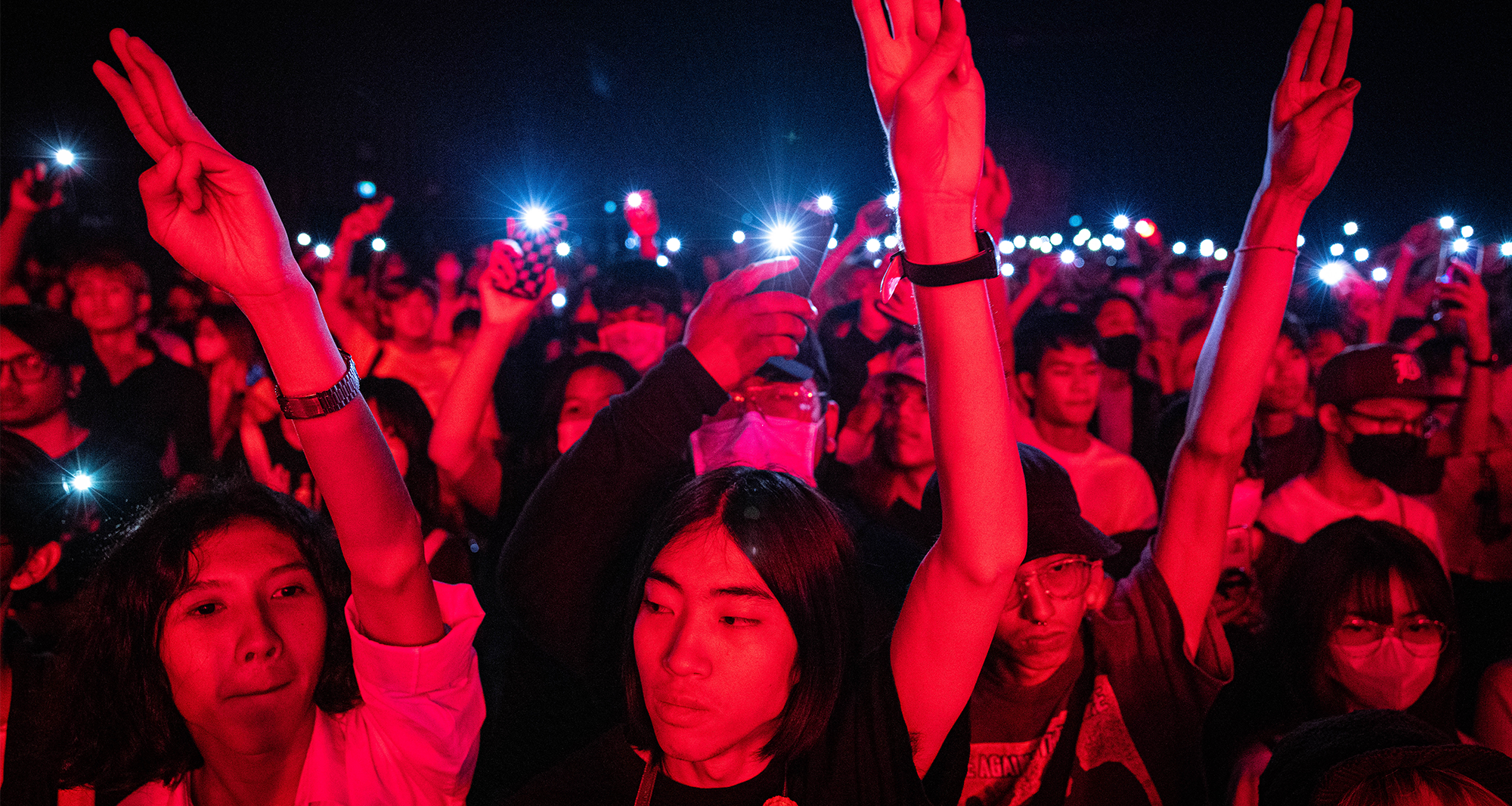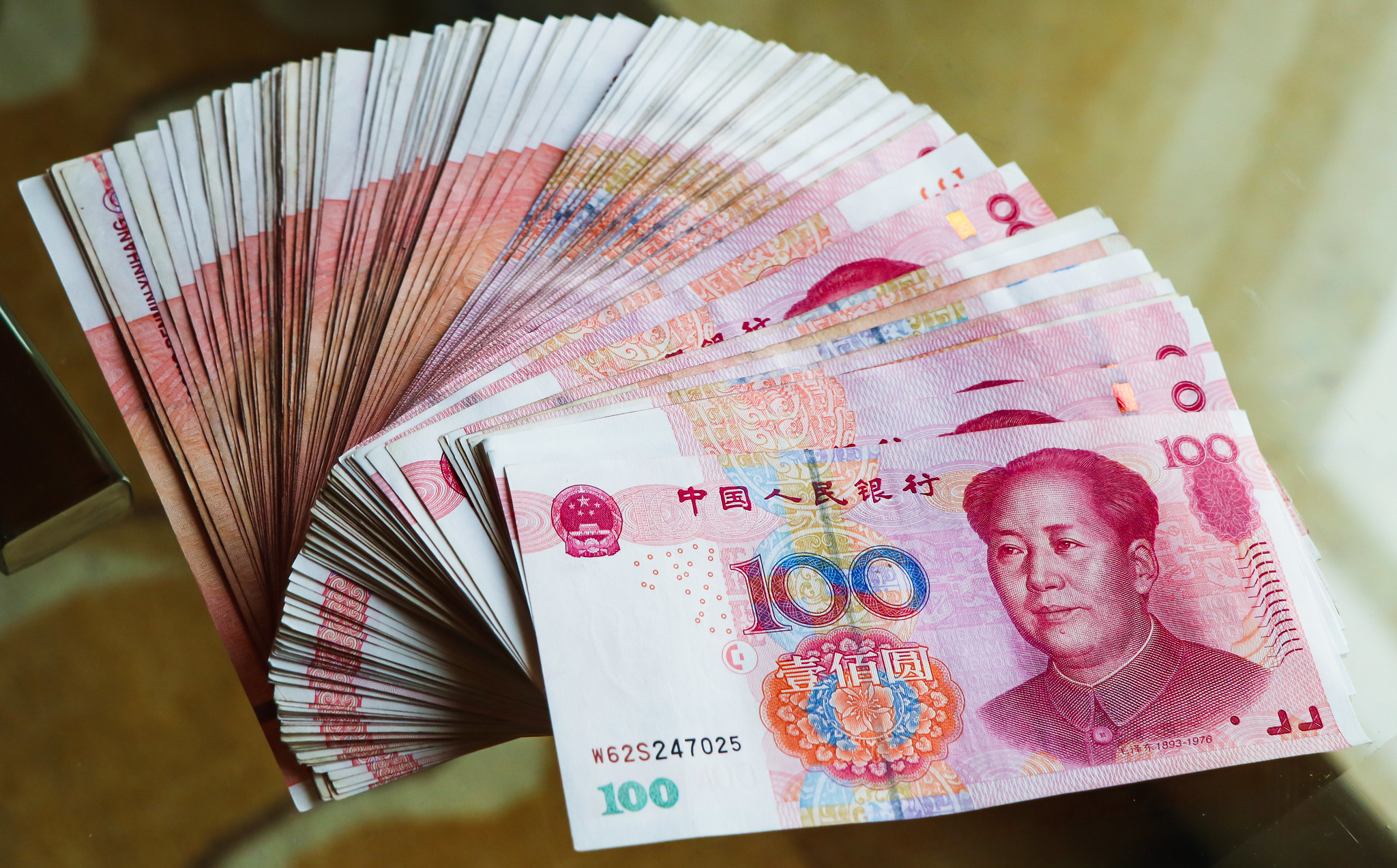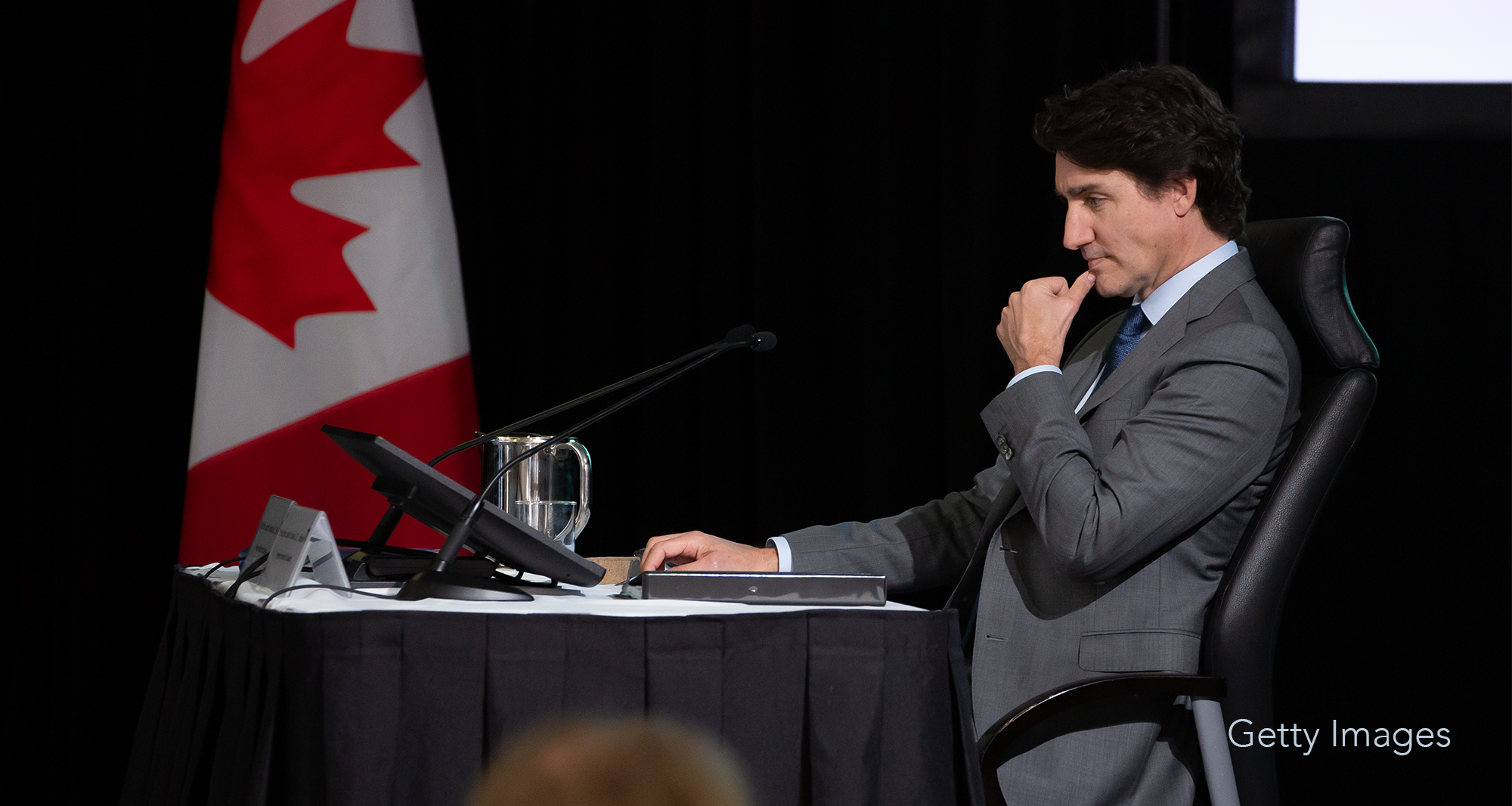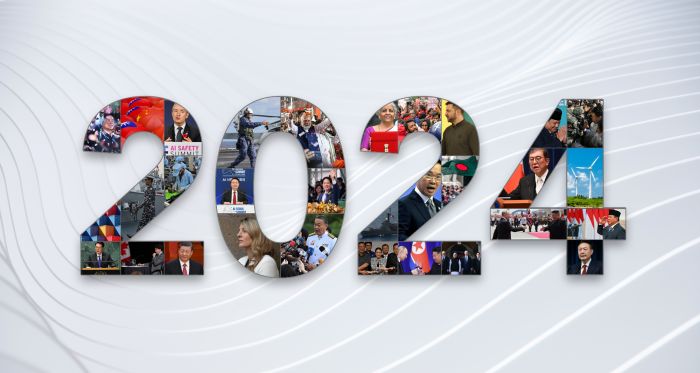1. It’s a tough time to be an incumbent.
In 2024, a record number of voters across Asia exercised their democratic rights and, in many cases, used the ballot box to punish incumbent governments they felt had fallen short. Ten regional democracies held presidential and/or parliamentary elections, including three of the largest — India, Indonesia, and Japan. If there was any common denominator among these votes, it was that there are limits to citizens’ patience with incumbent governments.
In India, voters defied expectations by giving Narendra Modi’s ruling Bharatiya Janata Party a much smaller margin of victory than in the previous election. In Japan, voters showed the depth of their frustration with the Liberal Democratic Party’s multiple scandals, forcing the new prime minister, Ishiba Shigeru, to rely on coalition partners to move his policy preferences forward.
In two South Asian countries, the anti-incumbency mood was even more pronounced. Sri Lankans sent traditional political elites packing in both the presidential and parliamentary elections.

The most dramatic reversal of fortunes happened in Bangladesh. Long-time incumbent Sheikh Hasina won handily in the January 2024 general election, having jailed or otherwise neutralized members of the opposition. However, six months into her new term, citizen protests sent Hasina into exile, ending her 15-year reign. With the country now managed by an interim government, Bangladeshis may soon get a do-over in electing their next leader.
National Assembly elections in South Korea in April handed a landslide victory to the opposition, worsening the legislative gridlock that was one of the reasons President Yook Seok Yul cited for declaring martial law in early December. Although he was forced to quickly rescind the order, the damage — to domestic politics and South Korea’s foreign relations — will reverberate well into 2025.
For all the talk globally of creeping authoritarianism and one-party dominance, many millions of voters across Asia used the ballot box to challenge incumbents, seek new directions, and demand accountability.
2. ‘Free trade’ is becoming less free.
Canada’s experience offers a prime case study of how governments grappled with a shifting global trade environment marked by protectionism, economic nationalism, and escalating geopolitical tensions.
On one hand, as the 2024 chair of the Comprehensive and Progressive Agreement for Trans-Pacific Partnership (CPTPP) Commission, Ottawa doubled down on its commitment to rules-based and high-standard trade. The federal government concluded a Comprehensive Economic Partnership Agreement (CEPA) with Indonesia and announced that it will kick off free trade agreement discussions with the Philippines in 2025.
On the other hand, this optimism played out against a darker backdrop. 2024 saw a surge in aggressive economic nationalism. Notably, the return of Donald Trump to the U.S. presidency — and his threat of imposing 25 per cent tariffs on Canada and Mexico and an additional 10 per cent on Chinese imports — sent shockwaves through Canada. Suddenly, the prospect of renegotiating the Canada-United States-Mexico Agreement was back on the table, and with it, a delicate balancing act for Canada: managing its essential trading relationship with Washington while preserving the freedom to pursue free and rules-based trade with others.

The complex interplay of industrial policy and national security concerns was also a feature of global trade in 2024. In September, Canada launched consultations on economic security measures, spurred in part by persistent worries about Chinese overcapacity, intellectual property theft, and huge subsidies. One high-profile move was Canada’s imposition of a 100 per cent tariff on Chinese electric vehicles.
The year ended with a flurry of mixed signals: Canada celebrated its leadership role in the CPTPP and the conclusion of trade deals in the Indo-Pacific while grappling with the reality that free trade is becoming less free. Behind the scenes, many countries have embraced “China + 1” strategies, diversifying supply chains to reduce dependence on Beijing. Others have looked to “connector economies” such as Mexico, Malaysia, and Vietnam, whose growing trade volumes helped keep global trade statistics stable in 2023 and 2024 — at least on the surface. The durability of these arrangements under the spectre of Trump 2.0 remains unclear.
For Canada, the overriding lesson of 2024 is that maintaining its hard-earned reputation as a champion of rules-based trade will not be easy. Ottawa must navigate between the pull of U.S. economic nationalism, the demands of diversifying beyond China, and the desire to uphold the principles of free and fair trade. The global economic order is in flux, and everyone — Canada included — must adapt.
3. Asia and Europe are interlinked more significantly than ever before.
The Indo-Pacific and Euro-Atlantic theatres, once seen as largely separate domains with distinct challenges, became entwined to a degree few predicted.
At its summit in Washington in July, NATO described China as a “decisive enabler” of its aggression against Ukraine. Perhaps the most dramatic example of this new interconnectedness came through Russia’s deepening partnerships with both China and North Korea. Moscow and Pyongyang revived their Cold War-era defence pact, and in a move that stunned experts, North Korean troops deployed to fight alongside Russian forces in Ukraine.
Indo-Pacific democracies such as Japan, South Korea, Taiwan, and the Philippines deepened their appreciation of how events in Europe could shape their own security environment. Many had already supported Ukraine, providing economic and humanitarian aid and, in some cases, stepping up their defence co-operation with NATO members. In 2024, that support was no longer purely symbolic: the precedent of an authoritarian state altering borders by force resonated in the Indo-Pacific region, where maritime disputes and potential conflict in the Taiwan Strait weigh heavily.

For Ottawa, whose Indo-Pacific Strategy aims to enhance engagement in Asia, these developments demanded policy coherence across multiple theatres. No longer can Canada think of its Indo-Pacific policies in isolation. Its NATO commitments, its newly released Arctic Foreign Policy, and its defence relationships all intersect with a geopolitical landscape where Europe’s security and Asia’s stability are tied together. Calls are now growing for Canada to increase defence spending and ensure that its Indo-Pacific posture aligns with its NATO obligations — and with efforts to maintain sovereignty and stability in the Arctic.
The events of 2024 made clear that the world’s security architecture is not neatly compartmentalized. Both geopolitics and policy planning must adapt to a new era in which a crisis in one part of the world can rapidly spill over into another.
4. Foreign interference is a persistent and evolving threat.
2024 was supposed to be a pivotal year for combating foreign interference in Canada. The Public Inquiry into Foreign Interference in Federal Electoral Processes and Democratic Institutions was launched in late January. The findings will inform a final report meant to provide a blueprint for how all segments of Canadian society can help to inoculate themselves. That report was scheduled for completion at the end of 2024 but has been delayed and will be made public in early 2025.
Much of what was shared about China during the public hearings had already been well-established through a drip of leaks and media reports in 2022 and 2023. But a mid-year report by the National Security and Intelligence Committee of Parliamentarians contained a bombshell: “troubling intelligence” suggesting that “some Parliamentarians”— the report did not specify who or how many — have been “semi-witting or witting participants in the efforts of foreign states to interfere in our politics.”

The even bigger news is what we learned about India. New details surfaced, for example, about the alleged involvement of Indian diplomatic officials in the June 2023 killing of Canadian citizen Hardeep Singh Nijjar. In December, it was reported that the Indian government may have also tried to derail an Ontario mayor’s effort to seek the Conservative Party’s leadership in 2022.
When 2024 began, Canadians hoped that by year’s end, they would have a better understanding of the nature and extent of foreign interference in Canada, and what can be done to address this. Instead, developments and revelations over the past year leave us feeling that we are still very much in the discovery phase.
5. AI and emerging technologies will accelerate change — and introduce new risks.
For Canada and many countries in Asia, 2024 underscored the need to invest in AI governance frameworks, domestically and internationally. Doing so means bolstering regulatory capacities, funding public research into ethical AI development, and working with allies to establish standards that deter misuse. It also requires acknowledging that AI is not a neutral tool; it can amplify inequalities, empower foreign interference, and undermine trust in public institutions if not carefully managed.

The lesson is clear: AI and other frontier technologies will shape the next decade’s geopolitical, economic, and social contours. Whether they do so for better or worse depends on the capacity of states, companies, and civil society to set guardrails and norms that channel innovation in a positive direction.
If 2024 taught us anything, it is that we live in a time when complacency is costly, and adaptability is paramount. The only certainty is that disruptive change will continue — and so will the need for thoughtful, strategic, and values-driven leadership in a rapidly evolving world.
- Edited by Ted Fraser, Senior Editor, APF Canada






